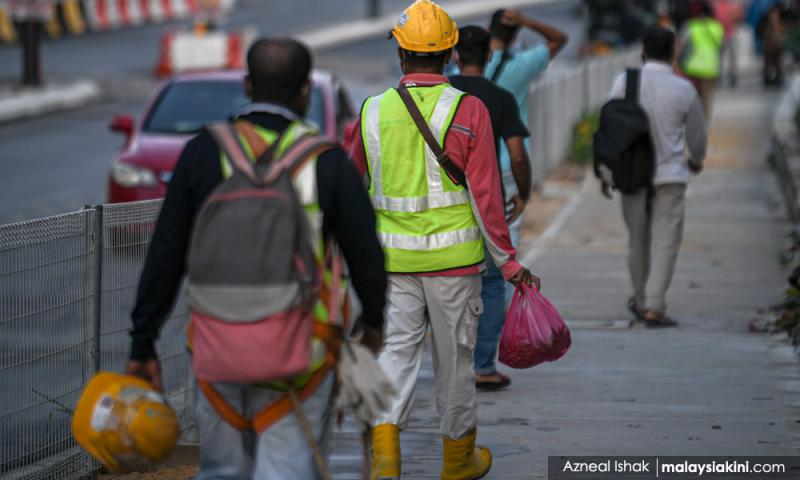LETTER | Concern over govt’s flip-flop on foreign worker management policy
LETTER | The Federation of Malaysian Manufacturers (FMM) laments the decision of the government back-pedalling on the existing policies on foreign worker management matters by moving the One-Stop Centre (OSC) for the recruitment of workers back to the Home Ministry, while the One-Channel System (OCS) to recruit domestic workers (domestic helpers/maids) remains under the purview of the Human Resources Ministry.
The industry is most disappointed with the constant flip-flops and knee-jerk changes to foreign workers’ policies which have over the years proven to be very damaging, especially to investor confidence.
The changes in policies have led to a lot of frustration amongst employers due to confusion in the processes, resulting in employers being given a run-around from ministry to ministry in addition to delays in the processing and approval which are very costly to employers as it impacts their ability to get workers on a timely basis and meet their order obligations.
The impact is even more damaging now as the country is just recovering from the Covid-19 pandemic in addition to the current global economic challenges which are envisaged to impact economic performance in 2023.
It was only in February this year when the foreign worker management was handed over to the Human Resources Ministry from the Home Ministry given their core role as the custodian of human resource and labour matters in the country and being the umbrella organisation that oversees the planning, management and development of the country’s manpower resources.
The ministry has undertaken the management of foreign worker matters in the country in line with its overall charter to ensure the smooth operations of the nation’s labour market and has over the past months made the necessary adjustments and improvements to the entire processing system based on feedback and inputs from the industry.
There is great concern that this flip-flop in the policy will set back business and economic recovery as there would be a recalibration of the policy and system by the Home Ministry after taking over the management.
Prime Minister Anwar Ibrahim had only just spoken about the need for efficiency of the government machinery and the need to dismantle overlapping services towards supporting economic recovery and growth.
We see this flip-flop as a regression to the prime minister’s call for greater efficiency in public service delivery. While the government had decided to move the OSC for the recruitment of foreign workers back to the Home Ministry, the matter of fact is that the Human Resources Ministry still handles many aspects relating to the recruitment and employment of foreign workers.
We see this reversal in the foreign worker management policy now complicating the entire process, making the process more challenging as employers have to obtain approvals from two or more ministries/agencies for a single application which would lead to further delays in approvals and worker arrival.
FMM stands firm that a single agency handling the entire FW employment process from end-to-end (recruitment to repatriation) via a single online system is key to ensuring clarity/transparency and greater efficiency of the system and improving investor confidence.
A single agency/single online system would ensure:
• Coordinated policy implementation and also removal of duplication of processes and procedures. It ensures that only a single central repository of FWs database is maintained which can be shared with all the relevant authorities and agencies instead of having multiple systems and databases for different stages of the application process handled by different ministries/agencies and requiring employers to submit data and employee authorisation to multiple ministries/agencies.
• Prompt communication. Issues are resolved faster as employers only deal with a single agency and system.
• Elimination of the need to appoint third-party service providers both domestically and in the source country to handle the many segments/processes involved in the employment of foreign workers. It removes the discretionary powers of the agencies and officers handling the applications.
• Removal of rent-seeking activities. By streamlining the various applications into one single system, the cost for employers will be lower.
FMM, therefore, calls on the government to review the decision to split the role of foreign worker management between the two ministries.
The entire processing of labour demand must be handled by the Human Resources Ministry while the Home Ministry should focus on security issues, issuance of the relevant visa and border control measures as done in other countries that have a similar dependence on foreign workers to complement the country’s manpower requirements.
SOH THIAN LAI is FMM president.
The views expressed here are those of the author/contributor and do not necessarily represent the views of Malaysiakini.
RM12.50 / month
- Unlimited access to award-winning journalism
- Comment and share your opinions on all our articles
- Gift interesting stories to your friends
- Tax deductable
